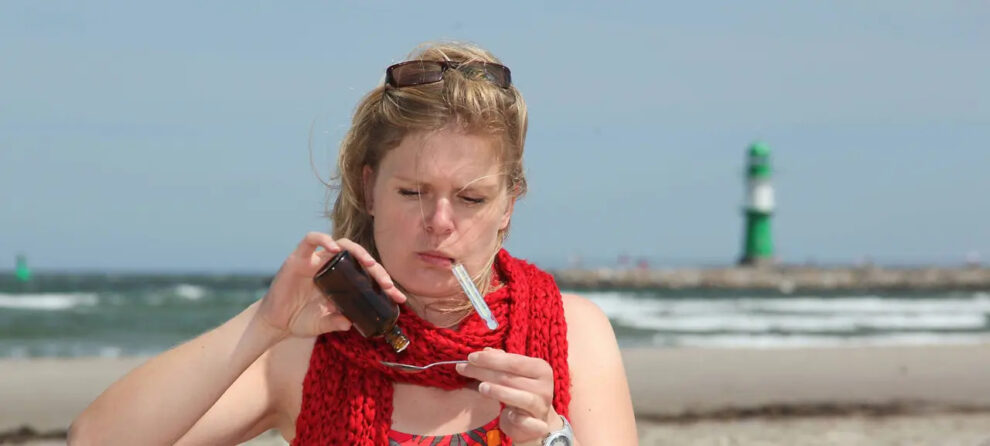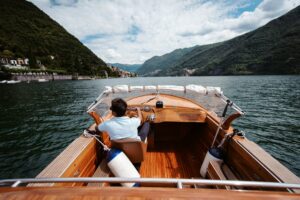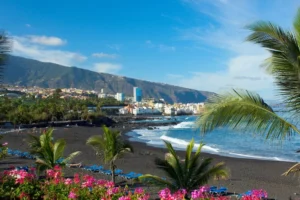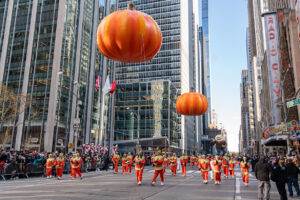Being ill on holiday – although after weeks of stress you were looking forward to rest: This phenomenon is called “leisure sickness”. What is the origin of it and how to avoid it.
Farewell to work and everyday life, let’s go on the long-awaited vacation. But then it happens: your nose is running, your head is pounding, you feel completely exhausted. And that of all things during the holidays, when leisure activities such as hiking or sailing, swimming or diving or just simply doing nothing should be the order of the day.
It is more common for people to get sick on vacation or at the weekend. According to a YouGov survey from 2017 commissioned by the International University of Applied Sciences Bad Honnef-Bonn, every fifth person in Germany is affected. Around 2,000 people took part in the online survey, which the university said was representative.
Not only top managers are affected
“Leisure Sickness” is the name of the phenomenon when people suffer from physical ailments in their free time. It is not the free time that seems to be the cause of the illness, but the tension before it. And it hits that too At least that’s what the study has shown, by no means only top managers with a 60-hour week, but also other employees. According to a study by the Barmer health insurance fund, the spectrum of symptoms ranges from headaches to colds such as a cough and runny nose to general exhaustion.
Even heart attacks are possible. “Many only notice in the recovery phases how much they have physically and mentally exerted themselves,” says the psychologist at the AOK Federal Association, Dieter Bonitz. They are often ambitious and conscientious, cannot get the work out of their heads and are always available.
When the sympathetic and parasympathetic become imbalanced
So how does leisure sickness come about? When stressed, the immune system works at full speed. If this pressure is removed during leisure time, the body produces fewer defense cells. As a result, pathogens have an easier time of it. The autonomic nervous system plays a crucial role. “It’s the interaction of the sympathetic and parasympathetic nervous systems,” explains Essen psychologist Andrea Jakob-Pannier on WDR.
Stress and pressure to perform often constantly activate the sympathetic nervous system. It can drive the organism to physical and mental peak performance. And the parasympathetic nervous system is its opponent – it is active in phases of recovery and relaxation. Man needs both – in their time. If the parasympathetic nervous system is less active over a longer period of time, it becomes more difficult to bring the organism into a recovery mode and to give it new momentum again.
This is how leisure sickness can be avoided
To prevent leisure sickness from occurring in the first place, everyone should take countermeasures in good time. Jakob Pannier advises:
- In professional life, prepare handovers to colleagues before you go on vacation – and don’t do everything at the last minute.
- Don’t power through until the last minute before your vacation.
- In the private sphere, too, it is important not to force the perfectionism that many people have into themselves before they go on vacation. “That means you don’t have to finish cleaning everything in the household,” says Jakob-Pannier.
Source : Tagesschau









